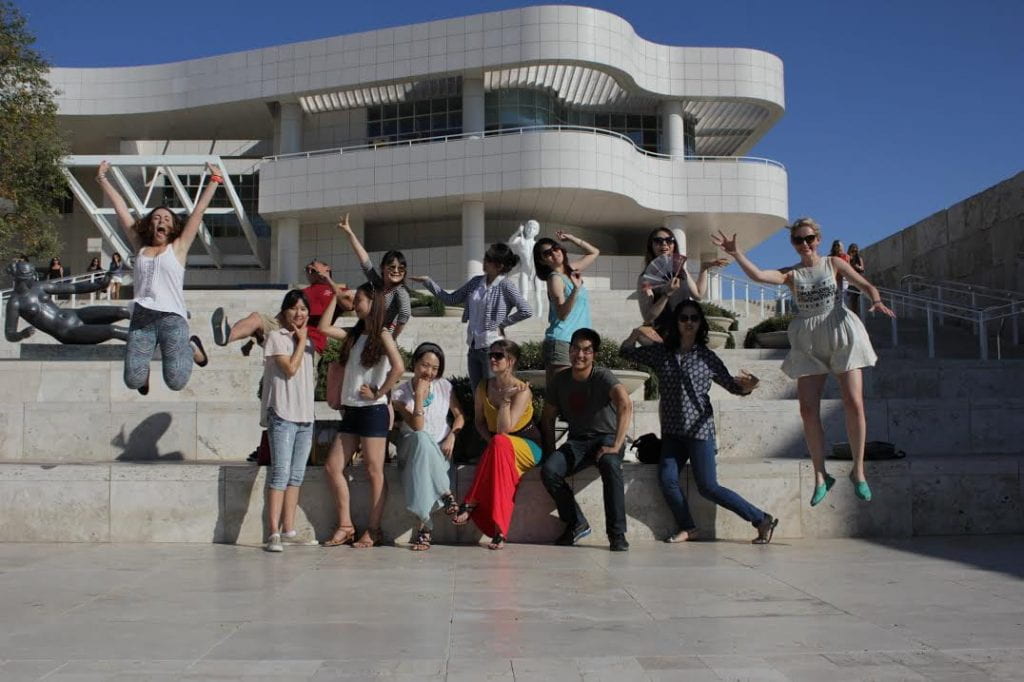What are the benefits of international programs? This was a core question I had when I began a doctorate program in occupational therapy at USC. As a student from Korea who had studied in the U.S., I already knew that there were many benefits, but I wanted to see if there was a broader consensus. As a Resident of Global Initiatives, I surveyed USC occupational therapy students after they completed a two-week exchange program at Yonsei University in Korea. The students indicated that the program helped them to develop seven attributes. I will add my own perspective to explain how anyone can strengthen these attributes by studying abroad. I added the eighth attribute because it’s too important to ignore.
1. Creativity
Being in a different country, you are in a new world, so what is normal to you might not be normal anymore. Different countries have different rules and resources. New foods, languages, and ways of doing things can add to your palate and give you useful tools. While you learn how other people see the world, you might change your perspective. Seeing the world through a new lens can boost creativity.
2. Problem-Solving Skills
You might face some problems that you never faced or even imagined. International programs are good opportunities to practice solving problems, because you typically face many of them in a short period of time. It is psychologically safe place to practice this too because you are expected to have these issues—it’s natural, and nothing to be embarrassed about. Good international programs connect you with local helping hands and mentors that can be your safety net.
3. Independent Thinking
Even with the strongest safety net, you often have fewer resources available to you did at home. Your advisors, friends, and family cannot give you advice every second of the day. On the other side of the globe, they might be sleeping when an urgent issue arises. Even after taking classes and reading books about the culture you are in, you will have misunderstandings during social interactions. But your interactions won’t be as natural if you have to rely on outside sources to guide you. So you have to think on your feet.
4. Professionalism
Students who participated in our short-term exchange program with Yonsei University in Korea said they felt like they have to represent USC very well, even in informal social outings. Even though they probably didn’t have to worry, it is true that the people you meet through international programs often have little experience with people from your university, or even your country. So this can be a great opportunity to practice your professionalism.
5. Confidence
Being abroad for the first time can be scary and overwhelming. I was not able to sleep at all the night before I first came to the United States. International students in our program had similar responses about going abroad. But you survive. That’s how you learn that you’ll continue to survive.
6. Cultural Competency
As an occupational therapist in a city like Los Angeles, you have to be comfortable working with people from different cultures. The best way to develop cultural competency is to be immersed in another culture. Have you ever read a book or article about your culture that made you laugh or say that the writer isn’t right? (I’m raising my hand.)
7. Global Perspective
After the Summer Occupational Therapy Immersion program last year, all the participants knew and cared more about what was happening in Norway, Korea, Taiwan, Japan, Venezuela, Mexico and Columbia because they now had friends in those countries. To gain global perspective, you have to first develop some interest. Developing a personal relationship with the country, whether it’s intentional or accidental, is one of the best ways to develop this interest.
8. Competitive Edge in Job Market
In addition to all of the attributes above, you can add uniqueness to your portfolio. Studying abroad may not be as rare as it once was. But with hundreds of countries and thousands of cities to choose from, and billions of people you might meet, everyone’s experience abroad is unique. In highly competitive job markets, having unique skills and a unique story can take you very far.
 Students in the 2014 Summer Occupational Therapy Immersion (SOTI) program visited the Getty Center in Los Angeles. The students were from Norway, Korea, Taiwan, Japan, Venezuela, Mexico and Columbia.
Students in the 2014 Summer Occupational Therapy Immersion (SOTI) program visited the Getty Center in Los Angeles. The students were from Norway, Korea, Taiwan, Japan, Venezuela, Mexico and Columbia.
Chanyang Park is from Korea, and in 2015 she earned her Doctorate of Occupational Therapy at the USC Mrs. T.H. Chan Division of Occupational Science and Occupational Therapy.

